Monarch host plants:
- Milkweed
Monarchs are really interesting butterflies. In one year there are four generations. The forth generation migrates and hibernates in Mexico. When they awaken, they mate and then fly back to lay their eggs. Except for the generation that migrates to Mexico, the total life cycle of a Monarch is only 6-8 weeks.
Monarchs are an egg for only 3-4 days and they start out really small. Here you can see an egg, a newborn Monarch and a Monarch that is maybe a day or so old.

Then they grow...
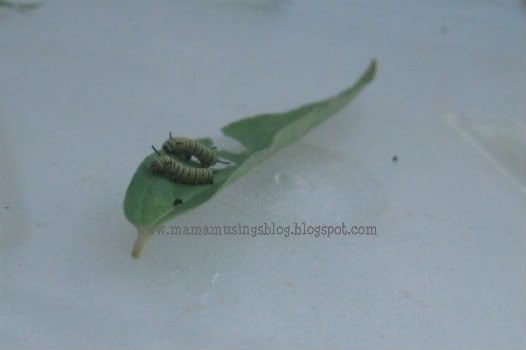
And grow..
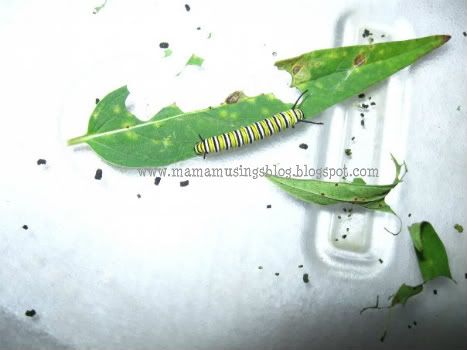
We've had the best luck with making "trees" for them. We put Milkweed clippings in water with the opening covered -- they can drown. This keeps the Milkweed fresher longer. But as they grow, it still doesn't last long.
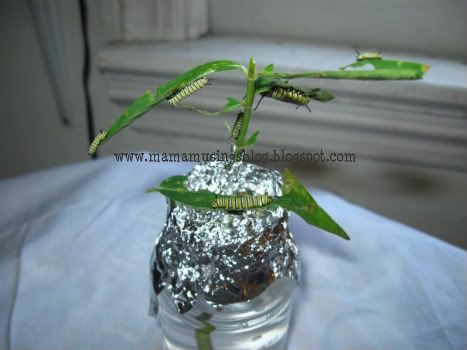
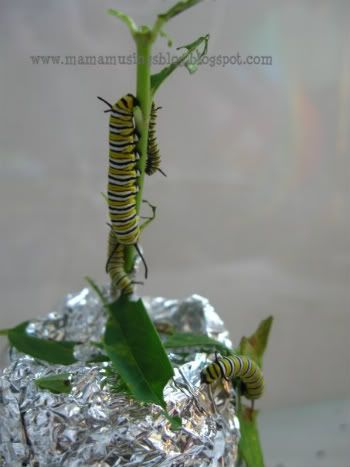
In different instars:
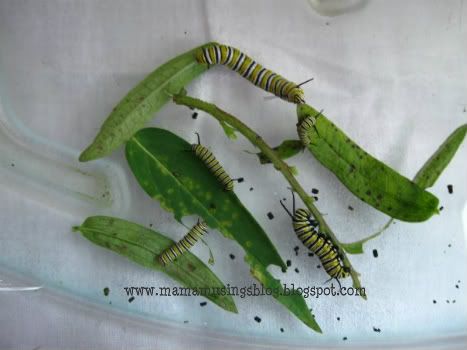
Finally they get about this big (about 2 weeks after hatching from it's egg) before they make their chrysalis:
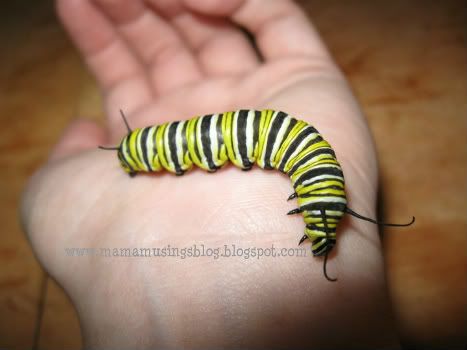
You know they are about to make their chrysalis when they hang in a "J":
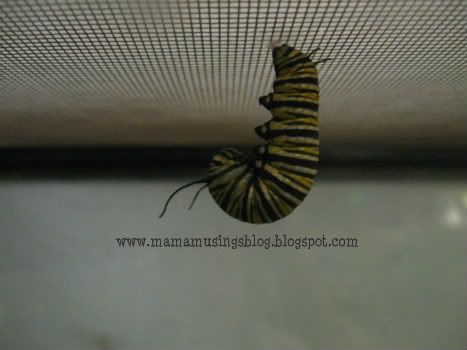
They make a little spot of silk and then turn to stick their back feet to it.
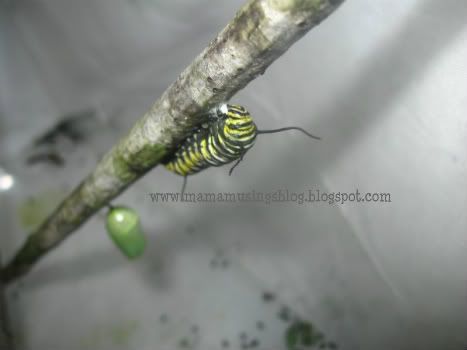
Then as their chrysalis forms, their skin splits and falls off.
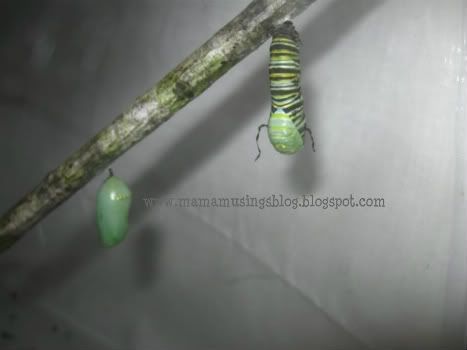
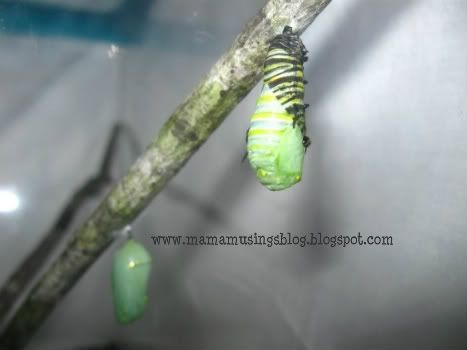
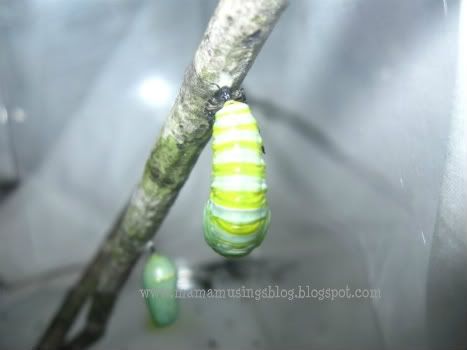
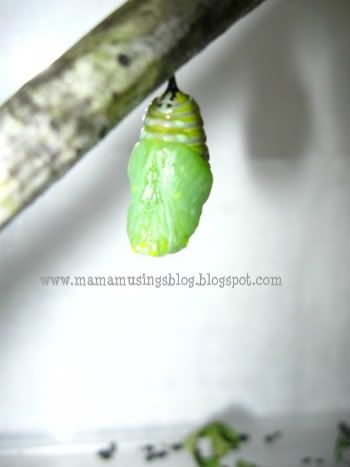
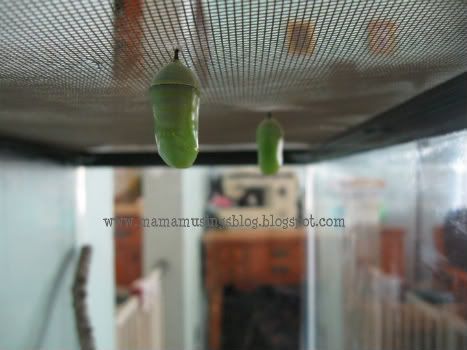
Monarchs spend about 10 days in their chrysalis before emerging as a butterfly. You will know that they are about to emerge when their chrysalis starts to turn clear (about a day before they emerge).
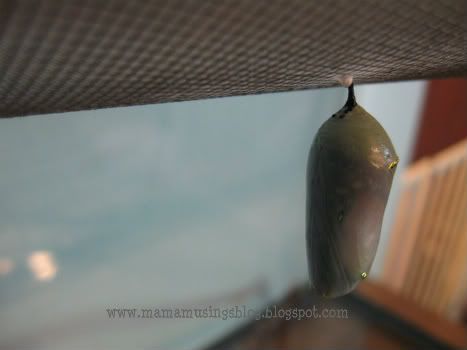
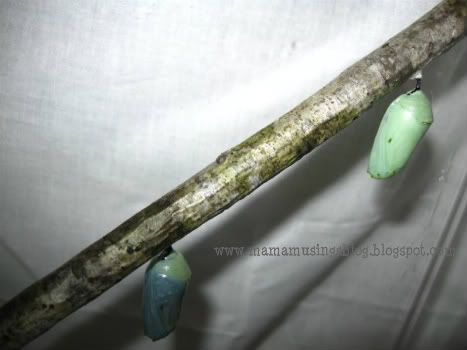
Finally, the day they will emerge, you can see the butterfly's markings through it's chrysalis.
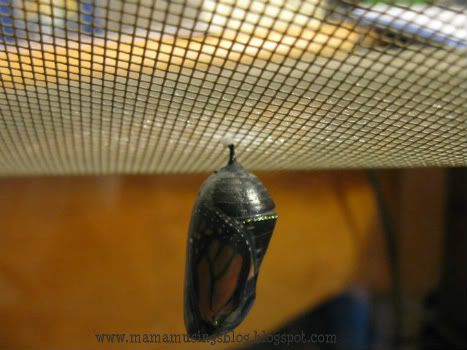
They emerge from their chrysalis very quickly.
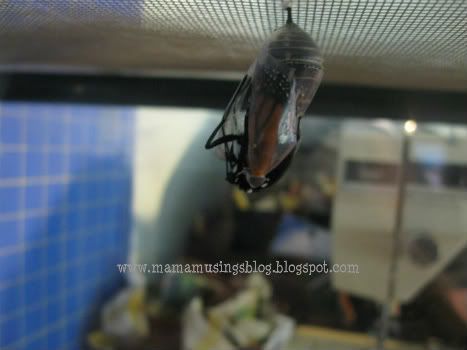
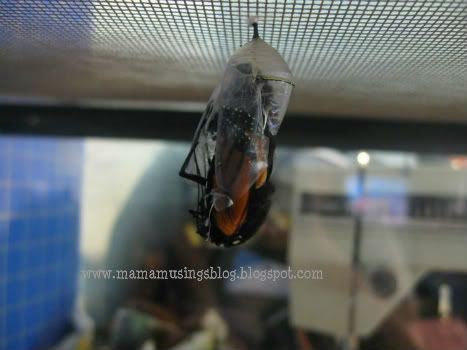
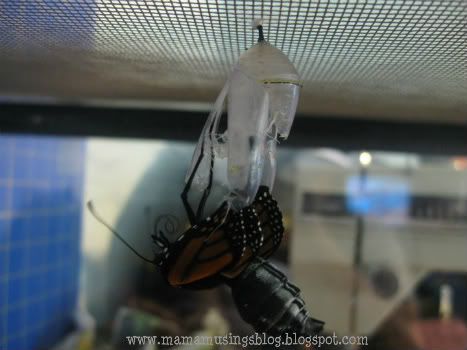
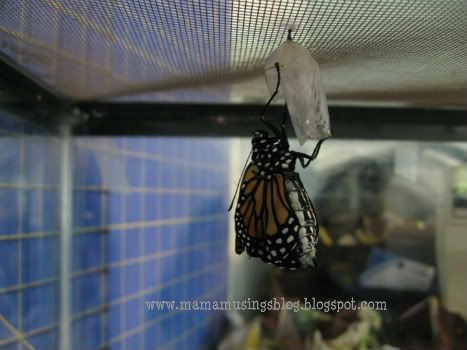
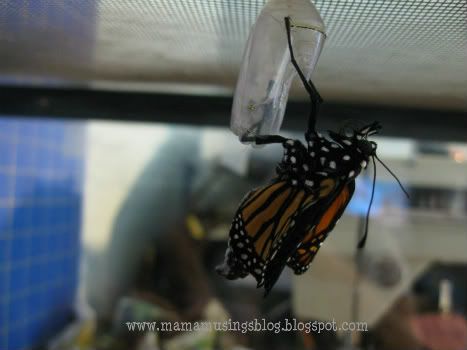
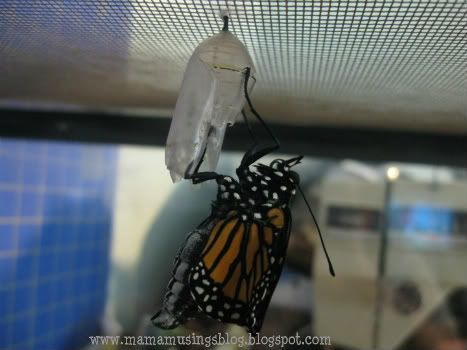
Then they must hang to inflate and dry their wings before being able to fly.
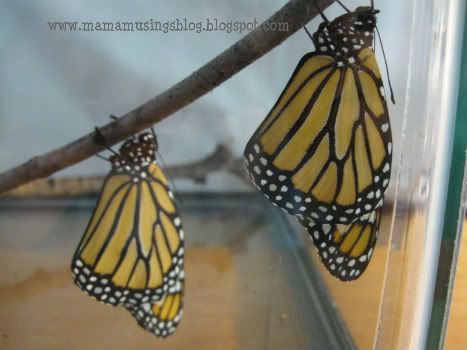
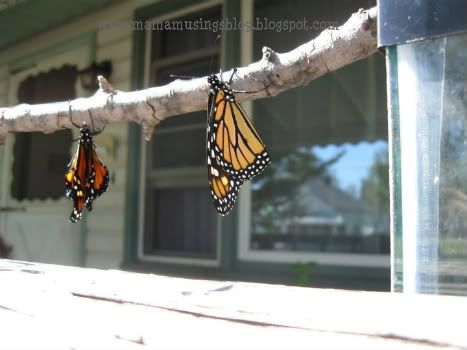
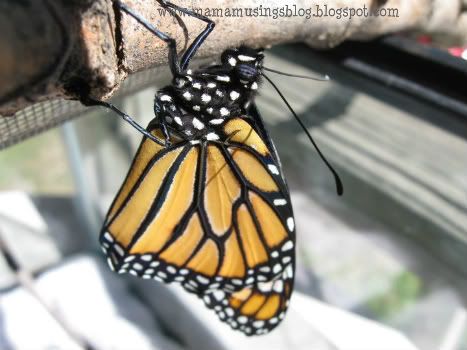
Once they finally open their wings, you can can tell if they are male or female.
Males have dots on the hindwings.
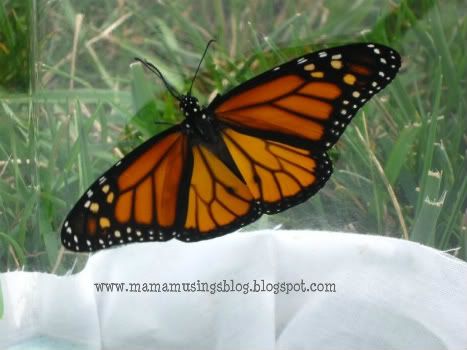
Females do not.
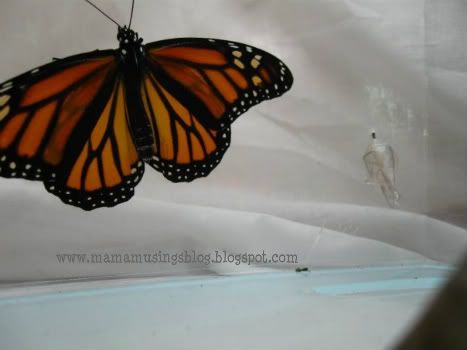
And they are ready to be released.
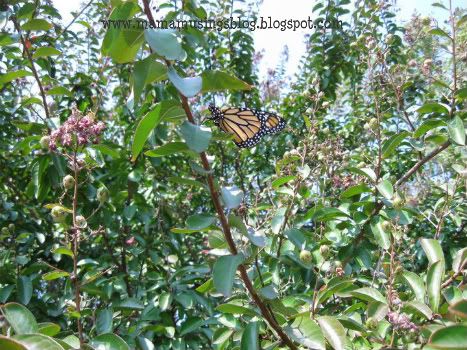


No comments:
Post a Comment